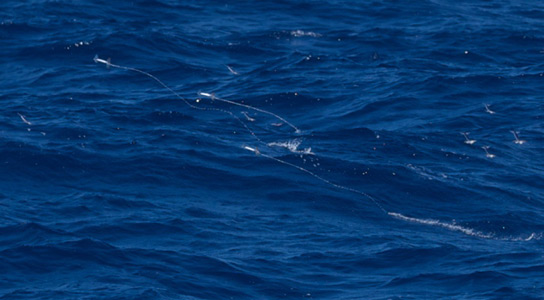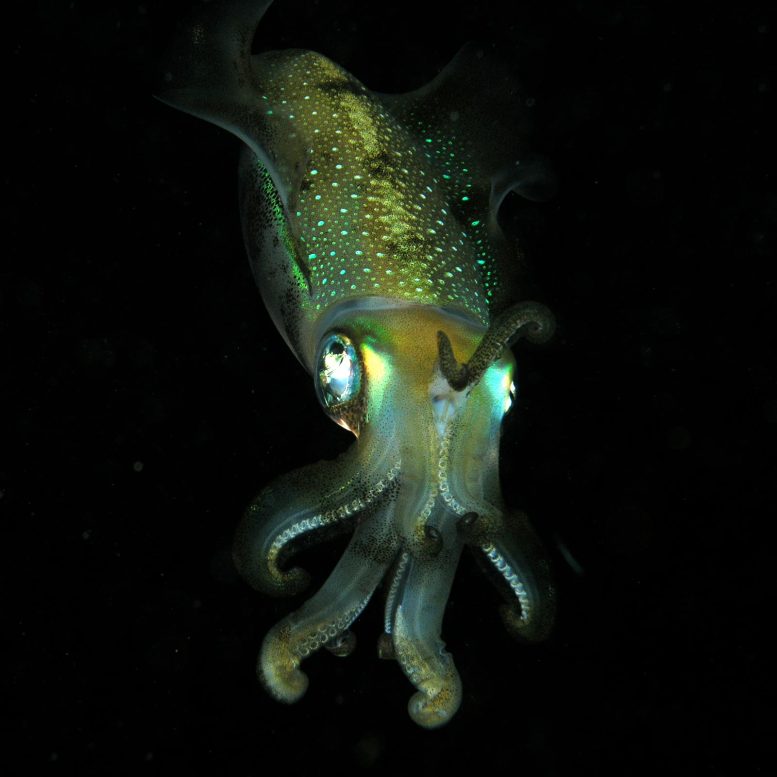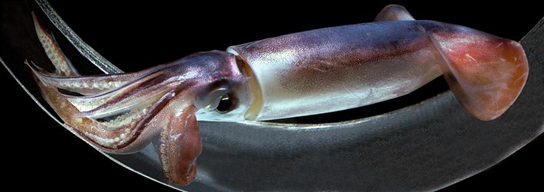
Squids can conserve energy by flying instead of swimming.
A new study, using high-speed photography, shows that squids can save energy by flying rather than swimming. Some species of Cephalopoda can launch themselves into the air using the jet-propulsion system that they use to swim. Until now, researchers have thought that this sort of ‘flight’ was used by Cephalopoda to avoid predators, but the new study shows that the animals actually conserve energy when using this way to travel long distances.
Squids squirt water out of their mantels, which allows them to rocket through water, and rocket themselves out of the sea, gliding through the air. Ronald O’Dor, a marine biologist at Dalhousie University, Halifax, Canada, calculated the efficiency of their movements through both mediums to come up with this surprising finding.

Friendly squid visit at night in Komodo National Park. Probably Sepioteuthis lessoniana. Credit: Nhobgood / Wikimedia
The behavior isn’t very widespread, but O’Dor has been gathering data on the Northern shortfin squid (Illex illecebrosus) in a 15-meter (49-foot) indoor pool since the 1970s. Initially, his research team would find dead squid around the pool in the mornings, indicating that the creatures jumped out of the water during the night.
Julia Stewart, another marine biologist, at Hopkins Marine Station, of the Stanford University in Pacific Grove, California, used tagging to track Humboldt squid (Dosidicus gigas). Her work found that they traveled faster than anyone had previously thought.

In research that Steward will present at the American Geophysical Union’s Ocean Sciences Meeting in Salt Lake City, Utah, O’Dor, Steward and their colleagues studied a set of photographs taken by amateur photographer Bob Hulse in 2009 off the coast of Brazil. Hulse shot rapid-succession pictures of Sthenoteuthis pteropus, a small cephalopod of about 6 cm (2.4 in), leaping out of the water.
They were able to estimate the squid’s velocity and acceleration, and compare them with the values known for squids in water. The airborne speed of the squids was five times faster than in water. This would allow the squid to be more efficient, since some of the species travel vast distances like I. illecebrosus that travels more than 1,000 kilometers (620 miles) to spawn.









Be the first to comment on "Study Shows That Cephalopods Travel Faster in Air Than in Water"